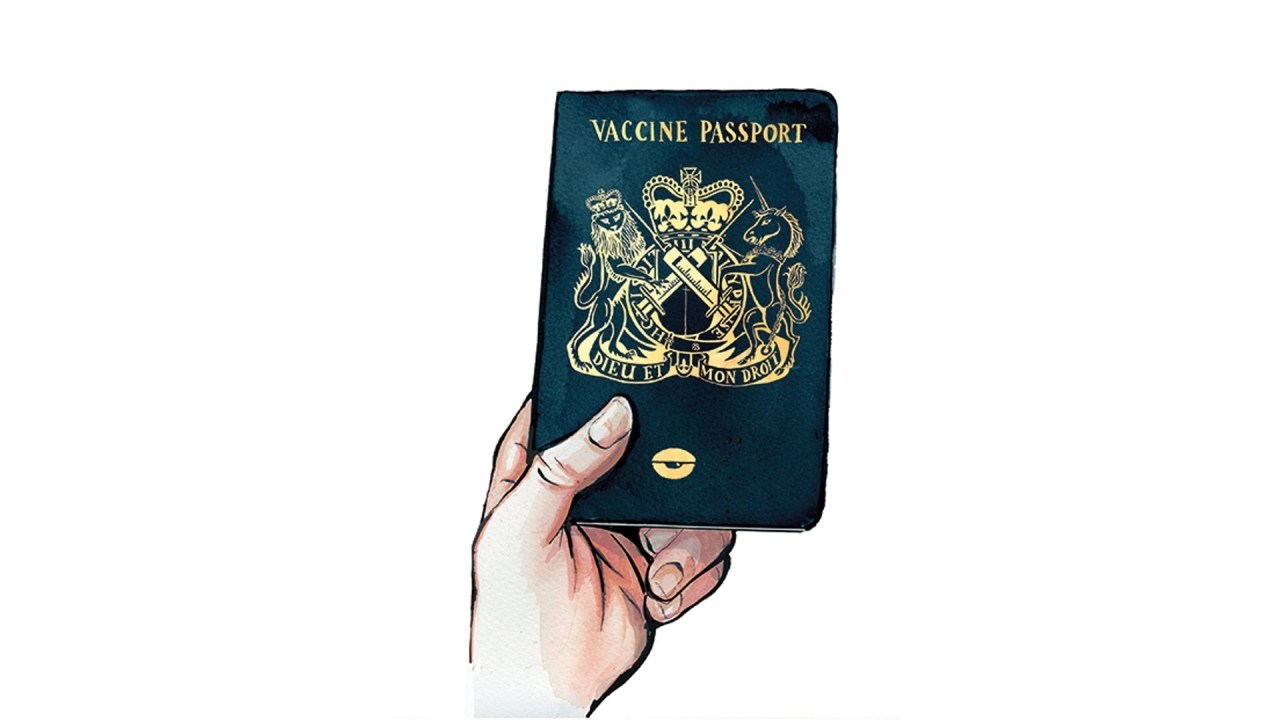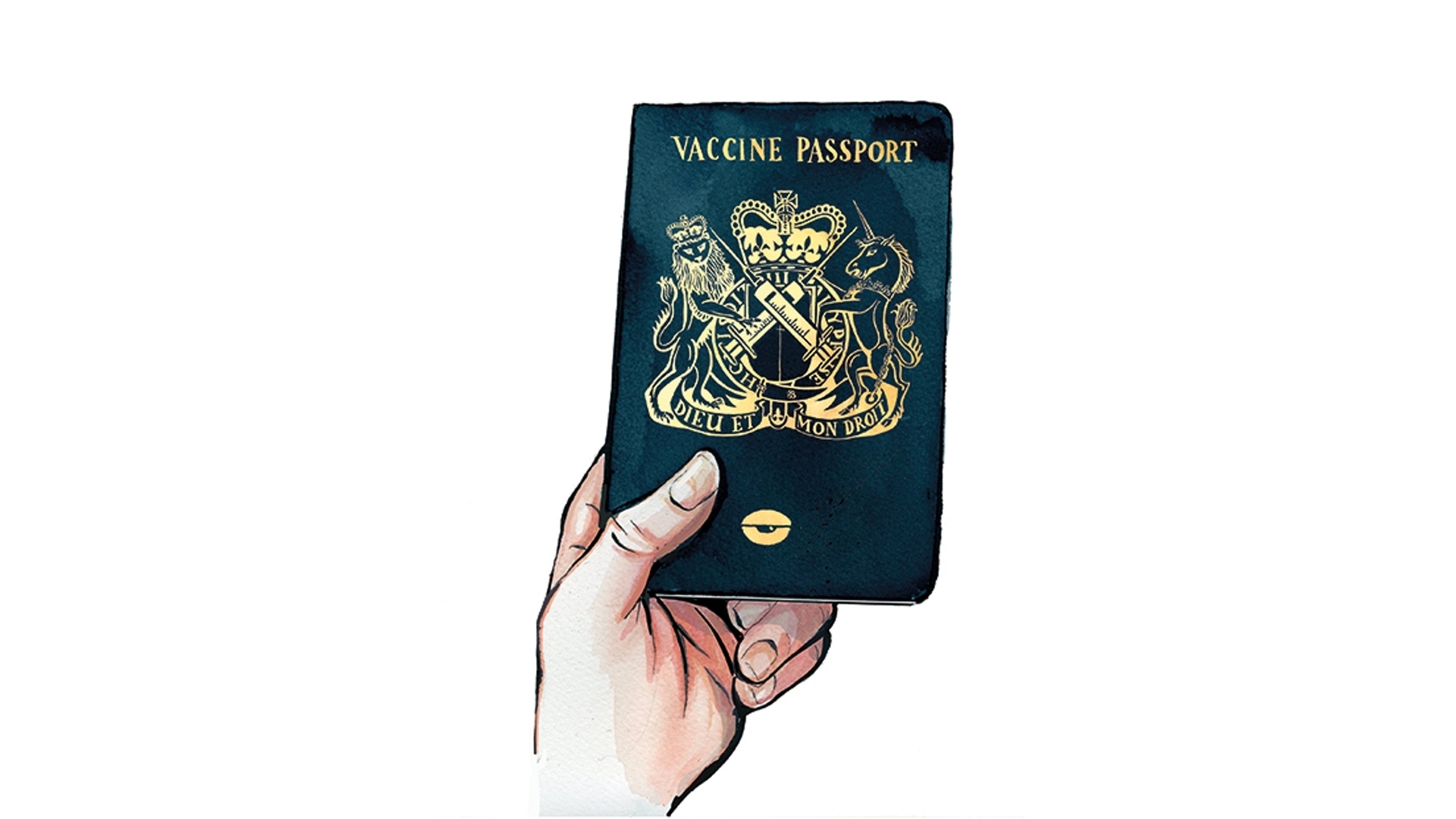The government denied it for months. Michael Gove said there were no plans for them. Backbenchers professed that the idea was unethical, unthinkable and unenforceable. The vaccines minister, Nadhim Zahawi, said the public could hold him to his promise that vaccine passports were never going to become a reality.
Yet in a rather predictable turn of events, the Prime Minister has this week announced that all over-18s will need to demonstrate that they have received both doses of a vaccine in order to enter nightclubs, venues and other large gatherings. From now on, ‘proof of a negative test will no longer be enough.’
Perhaps it’s our fault for continuing to believe the same old story: that one day our freedoms would be returned to us without caveats, strings or health apps. Perhaps we should have known that life would not simply return to normal once the threat of the virus had diminished.
The government’s U-turn on vaccine passports is particularly cruel for young people. We have sacrificed 18 months of our lives to protect loved ones and to safeguard public services. We have missed school, GCSEs, A-Levels, birthdays, Christmases, graduations, friends, family and more.
I entered lockdown aged 17. I am now 19. I rang in my 18th birthday alone in my supported accommodation after two years of homelessness, sofa-surfing and hardship. I felt utterly alone; my support systems were ripped away with no notice when lockdown began.
The past year and a half has had a devastating impact on the health and wellbeing of the entire population, not least children and young people. We are facing a mental health crisis for which the NHS is woefully unprepared; five-year-olds are having panic attacks over going out in public; entire year groups are sent home from school when one child in their class tests positive; students have been fenced into their accommodation blocks which are patrolled by police officers.
Some people have made the case that young people shouldn’t mind about being asked to show their health status to get into nightclubs. ‘People have died’ they say, ‘you should count yourselves lucky.’
They are of course right. This pandemic has been deeply tragic, and we should mourn the loss of every individual who has lost their life to coronavirus. But this isn’t just about nightclubs. Young people have watched the best years of their lives fly by during this pandemic. We have spent months living in fear and isolation, often going through immense changes alone and without support. We have seen families’ livelihoods destroyed, friends spiral into depression, our grades dictated by a rogue A-Level algorithm.
We stayed at home. We protected the NHS. We did all we could to save lives. And through it all we often faced contempt from the media, who called young people stupid for sharing our fears and concerns, for missing what we once had, and selfish for enjoying the small things – a day out on the beach, or meeting in the park – when we were briefly allowed to do so.
The irony is that, although Boris Johnson has introduced vaccine passports to encourage vaccine uptake among young people, I don’t know a single person my age that has not already received a vaccine or does not plan to get vaccinated. I’ve had my first jab and have booked my second for September. The Prime Minister’s suggestion that young people need to be coerced into getting their vaccine is simply ludicrous.
If you look at the anti-vaxx movement, who makes up the primary demographic? I will tell you for free that it isn’t 18- to 25-year-olds. It is an insult to people who have spent the past 18 months putting the greater good before themselves to dangle freedom in front of our faces once more, before cruelly adding these conditions.
The government should not have power over anyone’s right to medical autonomy. Nor should they make freedom contingent on vaccine status. The danger is that if vaccine passports are introduced, they may remain a part of our lives long after the pandemic is over.
In the second world war, the government introduced identity cards for all civilians. The wartime atmosphere made the public more willing to relinquish their civil liberties for the sake of the greater good. If you failed to produce your ID card when asked, you could be arrested and face criminal conviction. ID cards were not abolished until 1951, when Lord Chief Justice Goddard said the scheme had ‘tended to turn law-abiding subjects into law breakers.’
Vaccine passports present a similar problem as the wartime identification card, but with less legitimate grounds for their introduction. While vaccines exponentially reduce the likelihood of serious illness, they don’t stop transmission completely.
Like most of the public, I am an advocate for vaccines. But the idea of making our domestic freedoms contingent on your health status does not sit well. People are not public property. Our bodies are not owned or operated by the state. In a truly free country, as the United Kingdom purports to be, there is no place for vaccine passports.
Young people have made enormous sacrifices during this pandemic. Boris Johnson should respect them enough now to scrap this vaccine passport scheme.







Comments